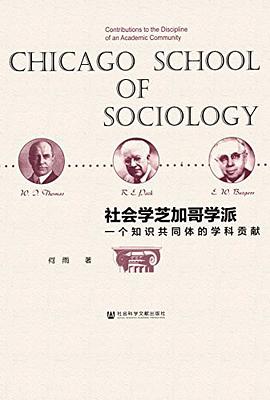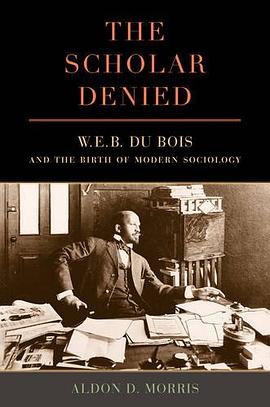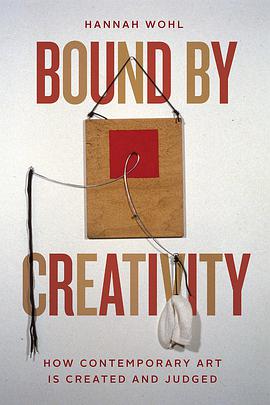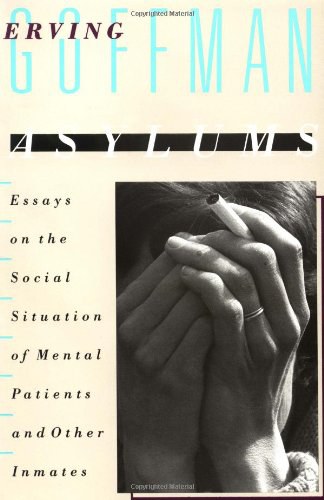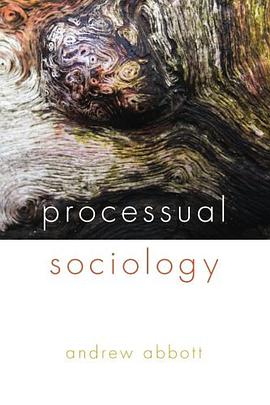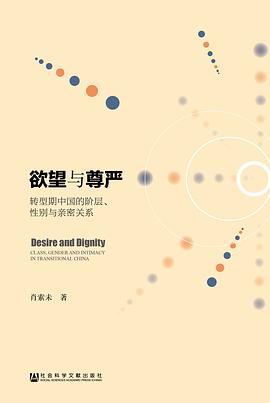sociology
The Scholar Denied 豆瓣
作者:
Aldon Morris
University of California Press
2017
- 1
Bound by Creativity 豆瓣
作者:
Hannah Wohl
University of Chicago Press
2021
- 6
While our traditional view of creative work might lead us to think of artists as solitary visionaries, the creative process is in fact deeply social. From those trying to land their first solo show to those with dozens of museum exhibitions, artists are influenced by others’ evaluations. In Bound by Creativity, sociologist Hannah Wohl draws on more than one hundred interviews and two years of ethnographic research in the New York contemporary art market, developing a sociological perspective on creativity through the analytic lens of judgment. Wohl takes readers into artists’ studios and shares firsthand how they decide which works to leave unfinished, destroy, put into storage, or exhibit. Wohl then transports readers into the art world, examining the interactions in galleries, international art fairs, and collectors’ homes that shape artists’ understandings of their work.
Wohl shows us how moments of judgment—whether by artists, curators, dealers, or collectors—reveal artistic practices to be profoundly sociological, both because artists’ sensibilities are informed by their interactions with others, and because artists’ decisions about their work affect the objects that circulate through the world. We see that judgment is an integral element of the creative process, resulting in the creation of distinctive and original works. Creativity, Wohl shows, rests on these highly social dynamics, and exploring it through this lens sheds new light on the production of cultural objects, markets, and prestige.
Wohl shows us how moments of judgment—whether by artists, curators, dealers, or collectors—reveal artistic practices to be profoundly sociological, both because artists’ sensibilities are informed by their interactions with others, and because artists’ decisions about their work affect the objects that circulate through the world. We see that judgment is an integral element of the creative process, resulting in the creation of distinctive and original works. Creativity, Wohl shows, rests on these highly social dynamics, and exploring it through this lens sheds new light on the production of cultural objects, markets, and prestige.
Heat Wave 豆瓣
作者:
Eric Klinenberg
University of Chicago Press
2003
- 7
In July 1995, Chicagoans suffered through a blistering week-long heat wave that buckled streets and downed portions of the city's power grid. It also left over 700 people dead. In this alarming book, Eric Klinenberg tells us how such fatalities could have happened in a modern American city. The picture he paints - of social breakdown, unresponsive government and poorly equipped public services - is one no reader interested in the current state of American urbanism can afford to ignore.
Asylums 豆瓣
作者:
Erving Goffman
Anchor
1961
- 11
Asylums is an analysis of life in "total institutions"--closed worlds like prisons, army camps, boarding schools, nursing homes and mental hospitals. It focuses on the relationship between the inmate and the institution, how the setting affects the person and how the person can deal with life on the inside.
Processual Sociology 豆瓣
作者:
Andrew Abbott
University Of Chicago Press
2016
- 3
For the past twenty years, noted sociologist Andrew Abbott has been developing what he calls a processual ontology for social life. In this view, the social world is constantly changing—making, remaking, and unmaking itself, instant by instant. He argues that even the units of the social world—both individuals and entities—must be explained by these series of events rather than as enduring objects, fixed in time. This radical concept, which lies at the heart of the Chicago School of Sociology, provides a means for the disciplines of history and sociology to interact with and reflect on each other.
In Processual Sociology, Abbott first examines the endurance of individuals and social groups through time and then goes on to consider the question of what this means for human nature. He looks at different approaches to the passing of social time and determination, all while examining the goal of social existence, weighing the concepts of individual outcome and social order. Abbott concludes by discussing core difficulties of the practice of social science as a moral activity, arguing that it is inescapably moral and therefore we must develop normative theories more sophisticated than our current naively political normativism. Ranging broadly across disciplines and methodologies, Processual Sociology breaks new ground in its search for conceptual foundations of a rigorously processual account of social life.
Close
REVIEW QUOTES
Rogers Brubaker, University of California–Los Angeles
“Abbott has long been one of sociology’s most fertile and original thinkers. These lucid and challenging essays display Abbott’s remarkably wide-ranging sociological intelligence at its best. Cumulatively, they articulate the core principles of a distinctively processual sociology, and they challenge us to recognize the irreducibly humanistic and moral nature of the sociological enterprise.”
Paul DiMaggio, New York University
“Processual Sociology’s essays draw on a dizzying range of sources and examples, blended into a stunningly original, disruptive, and fecund analysis. The interrogation of such basic concepts as actor and outcome; the insights into the way that sequence and ecology frustrate causal reasoning; the effort to reconstitute macro-sociology on a radically micro-sociological foundation; and the reclamation of the moral dimension are just a few of this volume’s important themes. Processual Sociology is both a good read and an ambitious and compelling challenge to the way that social scientists understand and carry out their craft.”
Craig Calhoun, director, London School of Economics
“In Processual Sociology, Abbott makes clear that his ambition is to change sociology fundamentally. In elegant but also rigorous essays, he connects his seemingly disparate past writings and foreshadows a basic rethinking of social ontology. This starts from the historical character of individual life and moves on to connect historical demography to the nature of groups, the constant making and remaking of all cultural and social relationships, and the inextricable connection between the empirical and the moral. It is a brilliant book that makes one want to drop everything else to join in thinking about sociology’s hardest, most basic questions.”
Randall Collins, University of Pennsylvania
“Abbott is the most surprising and innovative of today’s social theorists, in part because he combines disciplines as diverse as mathematical philosophy and literary theory. His work cuts in an entirely different way across the quantitative/qualitative and most other divides. Abbott repeatedly reverses the gestalts, advocating a lyrical sociology of contemporaneous flows rather than narratives explaining ‘outcomes’ abstracted from time, proposing that more is explained by problems of excess than problems of scarcity, and exposing concepts of inequality that run contrary to what we do in our own lives. This is a book to change the way sociologists think.”
In Processual Sociology, Abbott first examines the endurance of individuals and social groups through time and then goes on to consider the question of what this means for human nature. He looks at different approaches to the passing of social time and determination, all while examining the goal of social existence, weighing the concepts of individual outcome and social order. Abbott concludes by discussing core difficulties of the practice of social science as a moral activity, arguing that it is inescapably moral and therefore we must develop normative theories more sophisticated than our current naively political normativism. Ranging broadly across disciplines and methodologies, Processual Sociology breaks new ground in its search for conceptual foundations of a rigorously processual account of social life.
Close
REVIEW QUOTES
Rogers Brubaker, University of California–Los Angeles
“Abbott has long been one of sociology’s most fertile and original thinkers. These lucid and challenging essays display Abbott’s remarkably wide-ranging sociological intelligence at its best. Cumulatively, they articulate the core principles of a distinctively processual sociology, and they challenge us to recognize the irreducibly humanistic and moral nature of the sociological enterprise.”
Paul DiMaggio, New York University
“Processual Sociology’s essays draw on a dizzying range of sources and examples, blended into a stunningly original, disruptive, and fecund analysis. The interrogation of such basic concepts as actor and outcome; the insights into the way that sequence and ecology frustrate causal reasoning; the effort to reconstitute macro-sociology on a radically micro-sociological foundation; and the reclamation of the moral dimension are just a few of this volume’s important themes. Processual Sociology is both a good read and an ambitious and compelling challenge to the way that social scientists understand and carry out their craft.”
Craig Calhoun, director, London School of Economics
“In Processual Sociology, Abbott makes clear that his ambition is to change sociology fundamentally. In elegant but also rigorous essays, he connects his seemingly disparate past writings and foreshadows a basic rethinking of social ontology. This starts from the historical character of individual life and moves on to connect historical demography to the nature of groups, the constant making and remaking of all cultural and social relationships, and the inextricable connection between the empirical and the moral. It is a brilliant book that makes one want to drop everything else to join in thinking about sociology’s hardest, most basic questions.”
Randall Collins, University of Pennsylvania
“Abbott is the most surprising and innovative of today’s social theorists, in part because he combines disciplines as diverse as mathematical philosophy and literary theory. His work cuts in an entirely different way across the quantitative/qualitative and most other divides. Abbott repeatedly reverses the gestalts, advocating a lyrical sociology of contemporaneous flows rather than narratives explaining ‘outcomes’ abstracted from time, proposing that more is explained by problems of excess than problems of scarcity, and exposing concepts of inequality that run contrary to what we do in our own lives. This is a book to change the way sociologists think.”
